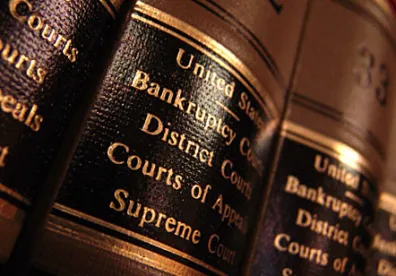Imagine this: you sell a product to a company on credit at 8% interest until you are paid, and the company files for bankruptcy before repayment. Or maybe you are a hard money lender that made an unsecured loan at 18% to a company to bridge through hard times, and the company files for bankruptcy. Or maybe you are a secured creditor with a 5% loan on real estate, and after the borrower files for bankruptcy, you discover there is a defect in your mortgage and your lien can be stripped.
Now imagine this: in each one of the above scenarios, the Chapter 11 bankruptcy filing was driven by a liquidity problem, but not a balance sheet problem. Your borrower is solvent! You can get paid in full! But what happens to your contract rate interest in the months-to-years that the borrower takes negotiate and confirm its plan? Do you just lose all that money?
As it turns out, like so many things in bankruptcy law, it depends on where the debtor’s bankruptcy case is pending, and the rapidly changing law on this point.
The general rule is that unsecured creditors are not entitled to post-petition interest as part of their claim. See, e.g., United Sav. Ass’n of Tex. V. Timbers of Inwood Forest Assocs., 484 U.S. 365, 372-73 (1988) (recognizing the “general rule disallowing postpetition interest” under § 502(b)(2)); In re W. Tex. Mktg. Corp., 54 F.3d 1194, 1197 (5th Cir. 1995) (“[C]laims for post-petition interest are not allowed against the estate”).
One exception to this general rule is that an unsecured creditor may recover post-petition interest on an allowed claim when the debtor is solvent. The legal reasoning underlying this exception (versus the practical considerations) is incredibly dense. It is founded in the interplay between Sections 726(a)(5) and 1129(a)(7) of the Bankruptcy Code and whether impairment (which is key to the Section 1129(a)(7) analysis) roots in the proposed plan or the law (specifically, Section 502(b)(2)’s disallowance of unsecured claims for unmatured interest). At this point, courts are generally in agreement that unsecured creditors are entitled to post-petition interest in solvent cases. However, the dispute lies with determining the interest rate to which those unsecured creditors are entitled.
The two options for the interest rate are either Federal post-judgment rate of interest under 28 U.S.C. § 1961, which is so low it approximates 0%, or the parties’ agreed upon contract rate of interest. This dispute – Federal post-judgment rate vs. contract rate – is the dispute currently raging in the court system.
The majority rule is, at the moment, the Federal post-judgment rate. This conclusion was reached in the following cases: Onink v. Cardelucci (In re Cardelucci), 285 F.3d 1231 (9th Cir. 2002); In re 341 W. Ponce de Leon, LLC, 515 B.R. 660 (Bankr. N.D. Ga. 2014); In re Robinson, 567 B.R. 644 (Bankr. N.D. Ga. 2017) (considering in a Chapter 7 context and reserving decision for Chapter 11 cases based upon differing equities); In re PG&E Corp., 610 B.R. 308 (Bankr. N.D. Cal. 2019); In re Washington Mut., Inc., 461 B.R. 200 (Bankr. D. Del. 2011); In re Energy Future Holdings Corp., 540 B.R. 109 (Bankr. D. Del. 2015). Most recently, on December 22, 2021, Judge Walrath of the Delaware Bankruptcy Court again ruled in favor of the Federal post-judgment rate in Wells Fargo Bank. N.A., et al. v. The Hertz Corp., et al. (In re The Hertz Corp., et al.), Adv. No. 21-50995 (Bankr. D. Del. Dec. 22, 2021). Going one step further, however, Judge Walrath held that the Federal post-judgment rate is the appropriate rate in context of both impaired and unimpaired unsecured claims.
However, if you are an unsecured creditor, all hope is not lost. There is a minority line of decision holding that the parties’ contract rate will govern the post-petition unsecured interest entitlement, although there is typically some daylight reserved for disallowing that rate based upon the equities of the case. See In re Beck, 128 B.R. 571 (Bankr. E.D. Okla. 1991); In re Schoeneberg, 156 B.R. 963 (Bankr. W.D. Tex. 1996); In re Dvorkin Holdings, LLC, 547 B.R. 880 (N.D. Ill. 2016); and In re Ultra Petroleum Corp., 624 B.R. 178 (Bankr. S.D. Tex. 2020). The Ultra Petroleum case is particularly interesting, as it is currently on its second appellate trip to the Fifth Circuit Court of Appeals on this issue. The case has, at this point, been fully briefed and argued, as well as supplemented based upon the aforementioned ruling in Hertz, and a ruling is expected in due course.
If the Fifth Circuit decides in Ultra Petroleum that the appropriate rate is the contract rate, rather than the Federal post-judgment rate, then it will be contrary to the Ninth Circuit’s holding in the Cardelucci case. The ensuing circuit split could elevate bankruptcy courts’ views of the current minority contract-rate position and, in time, could set up this issue to be taken up to the United States Supreme Court. So stay tuned.




 />i
/>i

